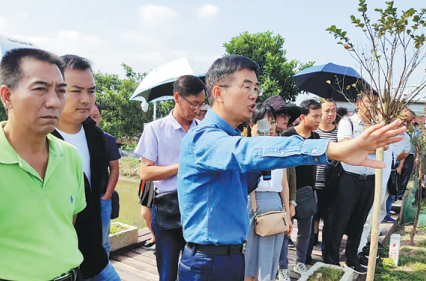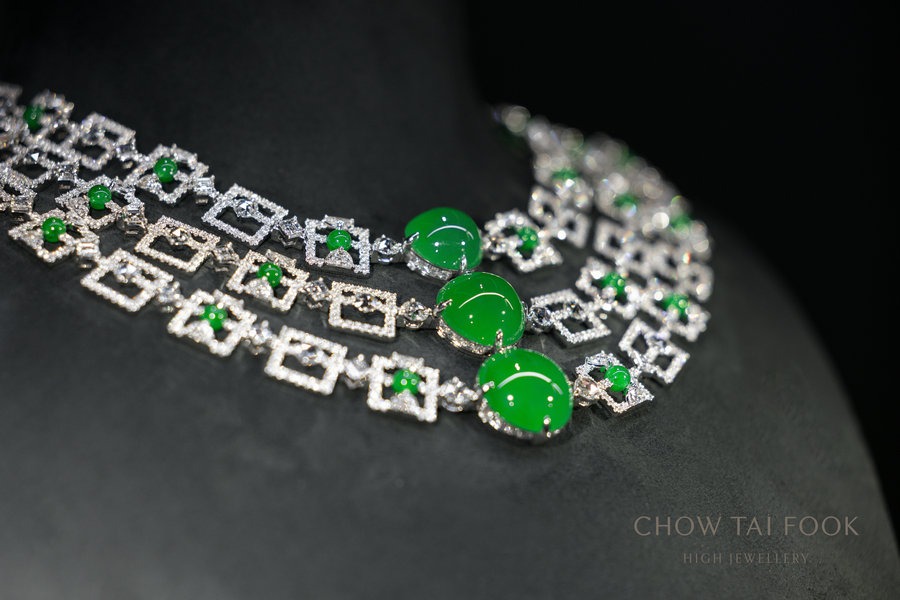Novel farming in Chongming draws fans

 Shen Hong shows visitors and local farmers his Mooyuu Farm, an eco-farm on Shanghai's Chongming Island. The farm is both a food source for the megacity as well as an experiment in green agriculture. Shen has been practicing sustainable agriculture on the island for two decades. CHINA DAILY
Shen Hong shows visitors and local farmers his Mooyuu Farm, an eco-farm on Shanghai's Chongming Island. The farm is both a food source for the megacity as well as an experiment in green agriculture. Shen has been practicing sustainable agriculture on the island for two decades. CHINA DAILY
From afar, the paddy in Mooyuu Farm does not look much different from other rice fields in East China. But a closer look reveals crayfish, soft-shell turtles, bullfrogs and mud eels swimming between the crop lines.
The farm is also unique because its rice is priced at 18 yuan ($2.6) per 500 grams, about four times the price of regular rice. The little creatures found in the farm are also for sale.
One of the many eco-farms on Shanghai's Chongming Island, Mooyuu Farm is both a food source for the megacity as well as an experiment in green agriculture. The farm is operated by 56-year-old general manager Shen Hong, who has been practicing sustainable agriculture on the island for two decades.
An aquaculture graduate from Zhejiang province who also has a master's degree from Shanghai Fisheries University-now known as Shanghai Ocean University-Shen first worked at the Marine Environmental Monitoring Center for the East China Sea before making a career switch in 1995 to help farmers on Chongming Island artificially breed hairy crabs.
In 2004, he started to experiment with pesticide-free farming and persuaded a few farmers to join him. With an initial investment of 100,000 yuan, they planted rice in a 6.6-hectare paddy without using chemicals. Instead, they relied on the crayfish to eat pests, performed weeding manually and used only organic fertilizer."It wasn't a big success at first, but it proved that my method could work," he says."The farmers were used to applying pesticides, herbicides and fertilizers, and doubted whether they could even have a harvest without such things."
Shen says that initial opposition that farmers voiced was understandable because what he studied in college was also focused on increasing the output of the field through industrial methods and agricultural chemicals.
"Back then, our country needed to increase crop harvests quickly to feed a fast-growing population," he says. "Now, we have become relatively well-off and people are starting to seek food that is healthier and more environmentally friendly.




































